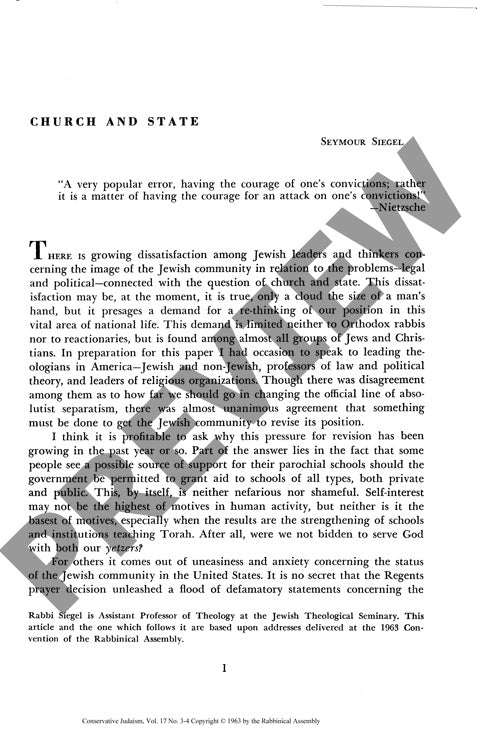Church and State
Couldn't load pickup availability
Growing dissatisfaction among Jewish leaders has revealed a near-unanimous call to revise the American Jewish community's "absolutist separationist" stance on church-state relations. Through interviews with theologians, legal scholars, and religious leaders, three primary factors emerge driving this shift: pragmatic self-interest in securing government aid for parochial schools, anxiety over negative public perception following the Regents prayer decision, and concern about the logical extremes of strict separationist principles. The Jewish community's position rests on three fundamental fallacies: the belief that secular culture benefits Jews more than religious culture, anti-Catholic bias that parallels liberal anti-Semitism, and false messianism that attempts to eliminate religious distinctions in public life. Drawing on classical Jewish sources, modern political theory, theological analysis, and constitutional interpretation, the evidence demonstrates that Judaism historically never endorsed church-state separation and that religion provides the necessary foundation for democratic culture. A more nuanced approach embracing accommodation between government and religion, while maintaining protection for religious minorities, would better serve both American democratic values and Jewish interests. This theological and political analysis reveals how authentic religious influence in public life strengthens rather than threatens democratic society.

More Information
-
Physical Description
-
Publication Information
Published 1963
ISBN
-
Publication Credits
Seymour Siegel

